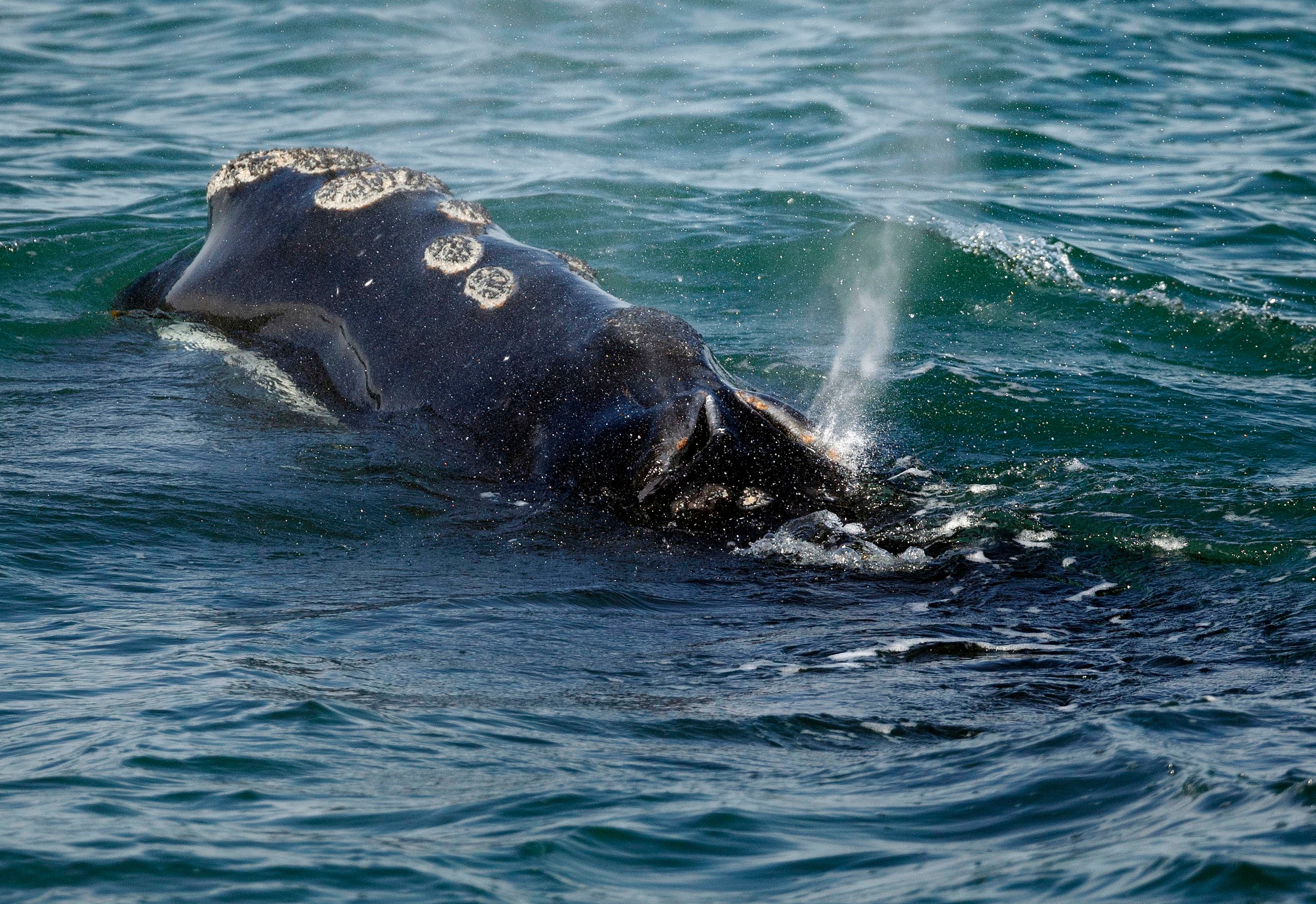First right whales of season gorge on critical food off Massachusetts, giving hope for a strong year
Scientists who study a critically endangered species of whale that lives off New England say encouraging early signs suggest the animals could have a strong season for feeding and breeding

Scientists who study a critically endangered species of whale that lives off New England said encouraging early signs suggest the animals could have a strong season for feeding and breeding.
The North Atlantic right whale is one of the rarest whale species in the world and it is thought to number about 370. The giant animals migrate, and usually arrive in Cape Cod Bay off Massachusetts early in the winter and stay until around the middle of May.
Scientists with the Center for Coastal Studies in Provincetown, Massachusetts, said they observed the first two right whales of the season in the bay on Nov. 18, and the animals are finding abundant food. The scientists said the animals were observed feeding on tiny organisms near the surface of the water, which is a behavior they don't usually exhibit until much later in the season.
Water samples collected in the path of the right whales showed a combination of the microscopic crustaceans the whales love to eat, said Christy Hudak, a researcher with the center. One of the crustaceans is Calanus finmarchicus, an oil-rich species that is critical to whale health, Hudak said.
"Although Calanus was not the dominant species in the sample, its presence in higher numbers is unusual for this time of year and it will be exciting to see if the food resource this year will prove a banner season for right whales in Cape Cod Bay," Hudak said.
The presence of abundant food off New England is the second piece of positive news for the right whales in recent weeks. A group of researchers reported in October that the whale's population increased about 4% from 2020 to 2023.
The whale's population fell by about 25% from 2010 to 2020, raising concerns about potential extinction among scientists and conservationists. Conservationists warned that the species is still in dire need of protection despite recent encouraging signs. The species includes fewer than 70 reproductively active females, which “further highlights the urgent need for conservation efforts,” the Clearwater Marine Aquarium said in a statement.
The whales are threatened by entanglement in commercial fishing gear and collisions with large ships. Scientists have said that the warming of the ocean has caused the whales to sometimes stray from protected zones in search of food, and that makes them more vulnerable to those threats.
The whales were abundant off New England generations ago, but they were decimated during the commercial whaling era.
Bookmark popover
Removed from bookmarks